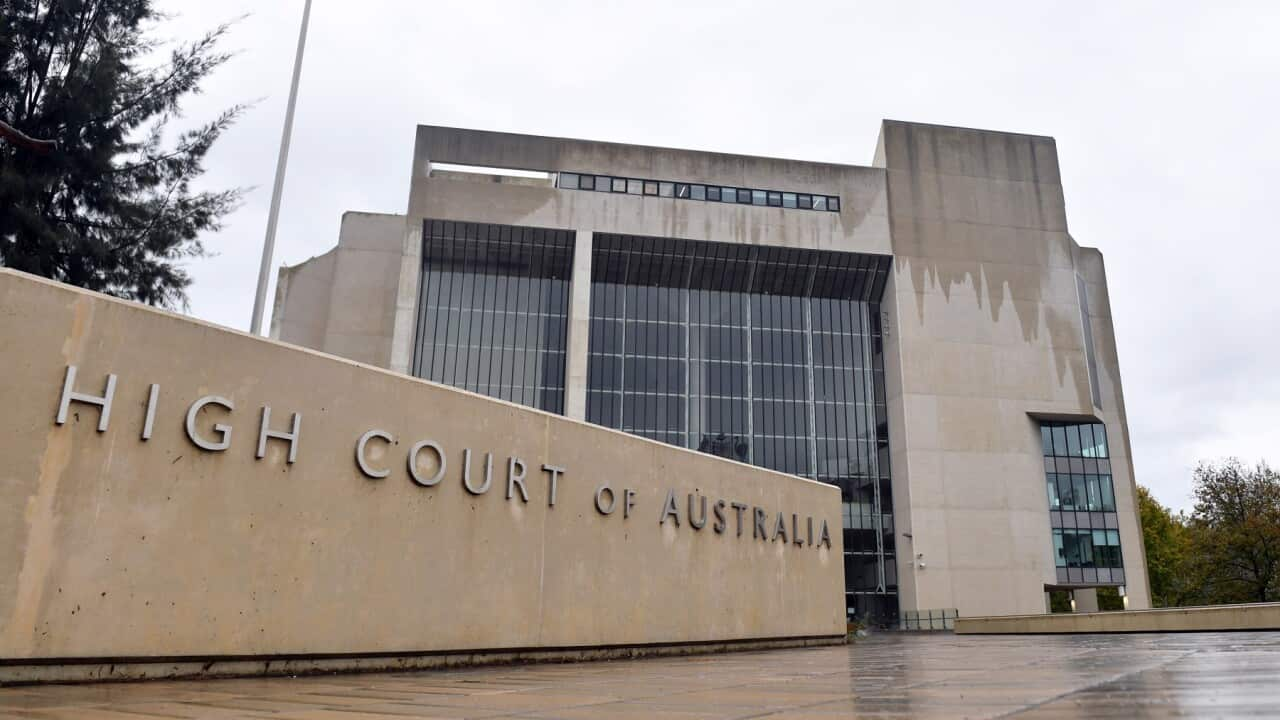Key Points
- More support is urgently needed for people being released from immigration detention, experts say.
- Some people are struggling to find food and don't know how long they will have accommodation, lawyers say.
- They will soon be subject to similar measures as high-risk terrorists.
More support for people trying to integrate back into society after being released from immigration detention is urgently needed, experts say, as the fallout from
Five of the nearly 150 detainees released following the High Court decision have been arrested and charged in separate incidents since leaving detention. Two are registered sex offenders.
The recently freed immigration detainees will soon be subject to similar measures as high-risk terrorists after on Wednesday.
Under the laws, released detainees assessed by a court to pose an unacceptable risk would be put back behind bars.
The maximum length of the detention order is three years, but it would be reviewed annually.
Immigration Minister Andrew Giles said the detention measures were necessary.
"This is the reality of the High Court's decision," he told parliament late on Wednesday night.
"The government did not choose to be in this position. The situation was imposed on this parliament by the High Court.
"The preventative detention regime would allow for the court to detain the worst of the worst offenders."
Without proper support, many recently released people are struggling to cope and being "set up to fail", Asylum Seeker Resource Centre (ASRC) principal solicitor Hannah Dickinson said.
"It's hard to imagine for most of us, but imagine you go through a justice system that's geared at rehabilitation. You're then, after you've completed a sentence, thrown into indefinite immigration detention where you might experience years on end without hope separated from your family and have serious health complications," she told SBS News.
"Then it's discovered that your detention was unconstitutional all along and without a legitimate purpose and you're suddenly released."
Dickinson said clients the centre had spoken to were getting headspins from hunger.
"They're not sure how long they're staying in their current accommodation. They're not sure what support is available to them, and they're in limbo and in fear. And then on top of that, they're subjected to incomprehensible conditions and quite extraordinary public debate suggesting they should be locked up forever, more or less," she said.
Some clients said they feel too ashamed to go outside and were significantly impaired by the nature of their release, she added.
The latest available figures from the Productivity Commission show 53 per cent of released prisoners had returned to corrective services within two years in 2020-21.
Executive director and principal solicitor at Refugee Legal, David Manne, said people in immigration detention weren't provided the opportunity for rehabilitation.
"By its very nature, immigration detention does not have infrastructure or programs for rehabilitation unlike in the criminal justice system, unlike in the correctional system where that kind of infrastructure and those programs are the norm," he told SBS News.
Manne said the support recently released detainees would need at a bare minimum was access to safe and secure housing, access to targeted health support, counselling for torture and trauma, access to means of subsistence, and help to obtain employment, education, or training.
"The focus needs to be not on speculating on re-offending but rather what are the basic needs of people released into the community and ensure that they're provided with proper support and case management so that they can live in the community," he said.
The Opposition has chastised the government for not having legislation ready to implement as soon as the court's decision was handed down so offenders weren't released.
Deputy Liberal leader Sussan Ley said the government owed Australians an apology and answers.
Lecturer in criminology at Macquarie University, Vincent Hurley, said when people were released from detention their isolation could compound because the government might exclude them from accessing community groups.
"If a detainee is in the immigration detention system and they've got a history according to the federal government of some right-wing or some type of crime, the government are going to exclude them from associating those particular social groups," he told SBS News.
Hurley said there may be many other psychological, cultural, religious, emotional or economic reasons why people would be unable to cope or fall into criminal activity.
"The role of detention undermines a trust within an individual who has been in detention because they've had it imposed upon them, and if they're then all of a sudden released into the community, they won't necessarily trust law enforcement agencies or the government," he said.
Additional reporting by AAP.











